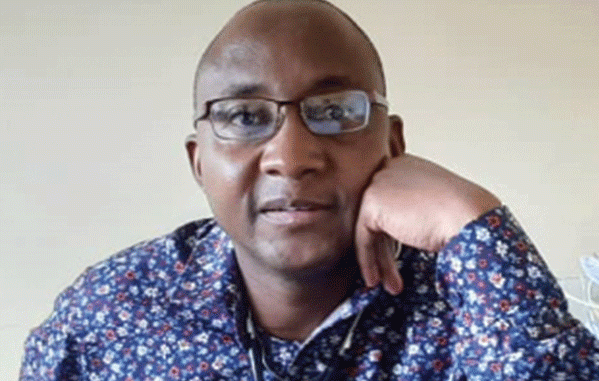
BY Johannes Marisa Health workers embarked on industrial action on Monday after failing to agree to prescribed working conditions by government.
Many healthcare workers have downed tools with nurses, nurse assistants, pharmacists, doctors getting involved.
This has put the health of many at serious risk with patients getting stranded. Very few patients are getting full medical assistance and cold cases are referred back home.
The situation is more dire at government central hospitals such as Parirenyatwa and Sally Mugabe.
Zimbabwe stood tall and firm against the deadly COVID-19 pandemic with a mortality of just around 5 530 people. United States of America lost 1 038 million people while neighbouring South Africa lost more than 101 640 people from COVID-19. So many deaths could have been missed because of poor data collection in many countries.
The Alma Ata Declaration of September 1978 expressed the need for urgent action by all governments, all health and development workers and the world community to protect and promote the health of all people.
In 2001, the Abuja Declaration became a rallying call to mobilise more resources from government coffers for the health sector.
At least 15% of the national budget is recommended to be channelled towards the health sector.
- Chamisa under fire over US$120K donation
- Mavhunga puts DeMbare into Chibuku quarterfinals
- Pension funds bet on Cabora Bassa oilfields
- Councils defy govt fire tender directive
Keep Reading
Health care was supported by the United Nations High-level Political Declaration on Universal Health Coverage on September 23, 2019.
According to Universal Declaration of Human Rights, health access is a fundamental right. This, therefore, calls for adequate funding of the health sector in all countries. For health deliverables to be favourable, health workforce, drugs, financing, governance and information systems should be robust. Health system will be strengthened.
Zimbabwe’s health system has a myriad of problems that need urgent solutions. Some of the problems have been in existence since time immemorial.
It is high time policymakers act prudently in order to avoid further disaster. It is understood that Zimbabwe is operating on a shoestring budget, but special consideration can be given to healthcare workers who have remained dedicated to the health cause of the nation.
The country is facing serious health drain with at least 2 100 healthcare workers leaving the country for greener pastures in 2021, 1 800 of which were nurses.
Many healthcare institutions are understaffed and the quality of health service is compromised.
The disease burden in the world is still high and the calamity may be worse if health workers remain away from duty because of incapacitation.
Healthcare workers should be convinced to return to work and all efforts should be made in order to bring normalcy to the health sector.
The impasse should be broken sooner than later as patients are yearning for medical assistance.
COVID-19 is still wreaking havoc, malaria, tuberculosis and HIV and Aids are still menacing the public.
Maternal complications are still prevalent, yet healthcare workers are on strike. Solutions should be sought.
- Arresting inflation should be the biggest priority. The cost of living is very high in Zimbabwe with the breadbasket now hovering around $100 000.
Many workers are finding the going very tough as their salaries are easily eroded by the sky-rocketing inflation. Prices are on an upward trend on a daily basis and vehicle insurances are now threatening many pockets.
- Government should come up with understandable proposals that will bring relief to healthcare workers at this juncture. Anything that healthcare workers may see as intimidation maybe rejected by the disgruntled workers.
There have been incessant strikes since 2019. The job boycott is now a perennial issue but there can be permanent solutions to stem all the job quagmire.
- Non-medical benefits can be introduced with speed. These can include residential stands, car loans, vehicles, land that can motivate health staff at a time when their morale is at its lowest.
Salaries should be in tandem with the inflation that is galloping on a daily basis. Our healthcare workers deserve better salaries as they have families to fend, children who need to go to school, they require fuel or bus fare daily as they report for duty.
- The Health Service Board (HSB) should be accommodative, tolerant and exhibit a paternalistic leadership style.
The vindictive perception against the HSB should be eliminated, hence the need for the health board to reform for the betterment of the nation. Arrogance at this juncture will not solve anything.
Health is a requirement for everyone. Our health sector needs reforms, improvements and permanent solutions!
- Johannes Marisa is president of the Medical and Dental Private Practitioners Association of Zimbabwe. He writes here in his personal capacity.











